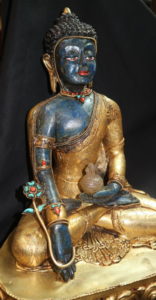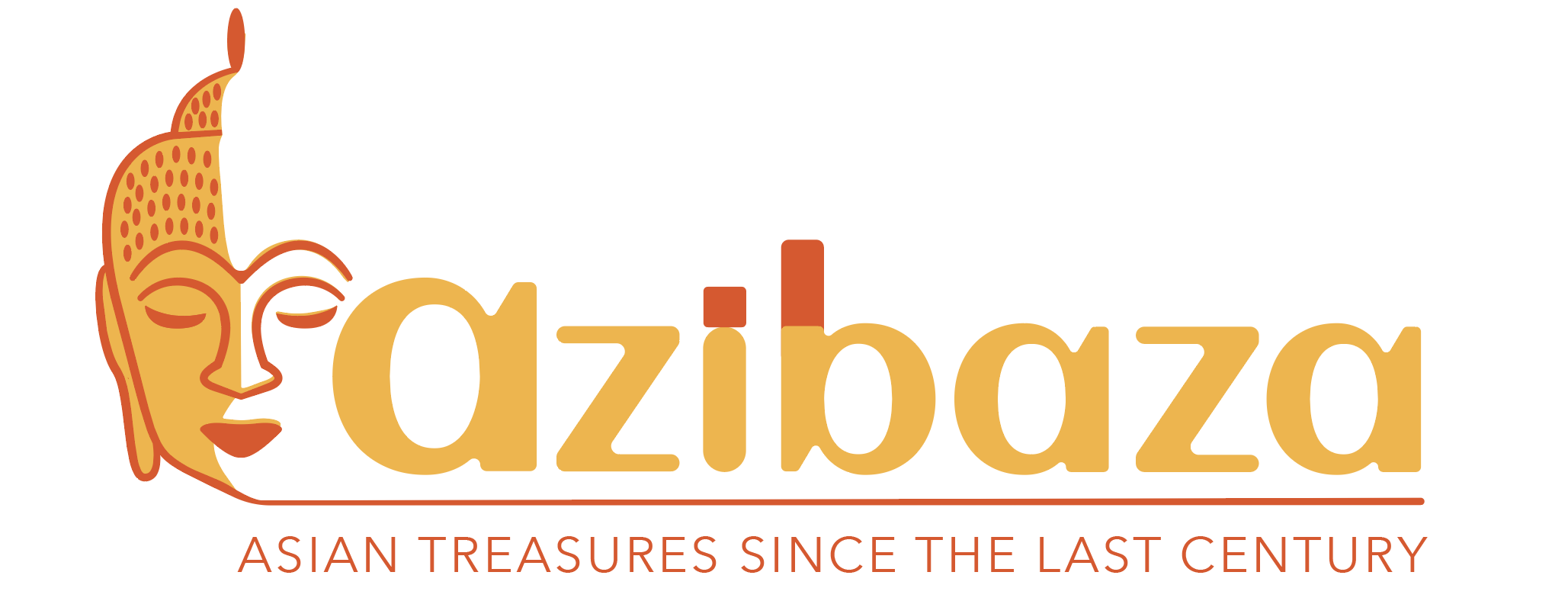by David Michie|
David Michie teaches us a healing meditation to purify karma and cultivate well-being.
It is no coincidence that the words “medication” and “meditation” are only one letter different. They both come from the same Latin root word, medeor, meaning “to heal or to make whole.”
In the West, our medical focus is on the external—on the curing of physical symptoms—while Eastern traditions focus more on the internal, that is, addressing the mental causes of illness. It is our good fortune to be living at a time when we can access the best of both worlds.
Medicine Buddha meditation is a healing practice treasured by many in the Mahayana Buddhist tradition. We can practice it for ourselves, or for someone we care about who is ill. The oldest Medicine Buddha sutra we know about dates from the seventh century. In that sutra, we are told the story of a bodhisattva, Medicine Buddha, who made twelve vows about how he would help living beings after attaining enlightenment. The holistic healing of mind and body was an important focus of his vows: he promised to help eradicate pain, disease, and disabilities of all kinds, as well as promote good health and optimal flourishing.
When we practice Medicine Buddha meditation, we do not do so to replace mainstream medical treatment, but to complement it. The practice purifies and removes the underlying, karmic causes of disease and cultivates the causes for holistic well-being. Such may be the power of our practice that we experience significant improvements in the symptoms, too. But we need to be clear about what we are doing.
Medicine Buddha is as much about mind as it is body. Empirical evidence shows that when we meditate, it triggers a self-repair mechanism in our own bodies. We stop producing cortisol and adrenalin, and instead enhance the production of immune-boosting endorphins and seratonin, arming our body against invasive bacteria, viruses, and other imbalances. These changes also promote positive mental states.
An element of confidence in the practice is helpful. The placebo effect is said to account for more than a third of all healing. Medicine Buddha meditation has been practiced for thousands of years. If we have confidence that it can work for us, then we’re off to a very good start.
Resonance may also account for the powerful impact of Medicine Buddha practice. On one level, we may be sitting alone in a room meditating, but in a different way we are resonating with the many hundreds of thousands of people who have done exactly the same thing before us. We’re benefiting from their experience and contributing to the experience of those who follow.
When doing this practice, it’s important to retain an awareness that you are not an inherently existent person asking an inherently existent buddha to get rid of an inherently existent illness. This would be little different from a theistic or shamanistic approach. It is precisely because nothing has any true, separate, or independent existence—including illness—that practices like this have power.
We invoke Medicine Buddha through the use of specific imagery and sound, reaching out to the consciousness of those numberless beings who have already attained enlightenment and who have chosen to manifest Medicine Buddha’s qualities.
The minds of buddhas are understood to be all-seeing and all-knowing. Buddhas react to their mantra in the same way we react when we hear our name mentioned, so we pretty much have a buddha on speed dial when we use their mantra. To borrow a metaphor from the late Tibetan teacher Gelek Rinpoche, when we recite a buddha’s mantra we are providing a hoop through which they can hook us into their energetic influence.
Note that Medicine Buddha is a Kriya tantra practice. As such, it is helpful that you first have some familiarity with the sutra tradition, as well as receive proper initiations and teachings from a properly qualified teacher, if you wish to fully embody the precious Medicine Buddha lineage.




